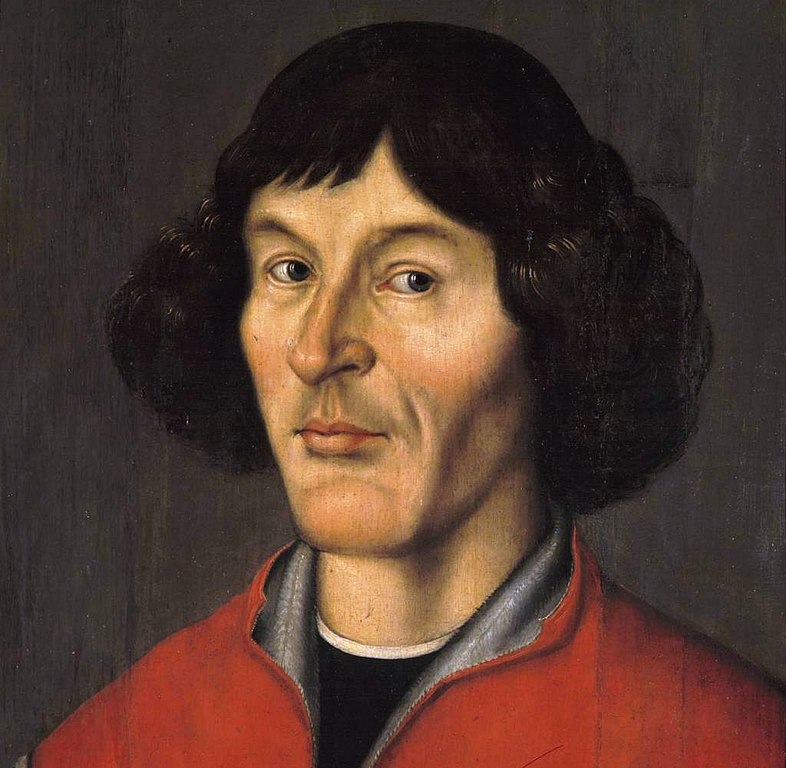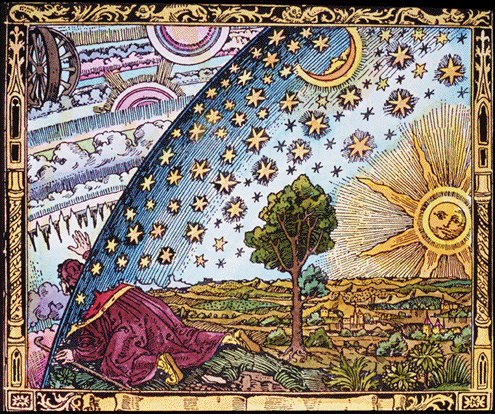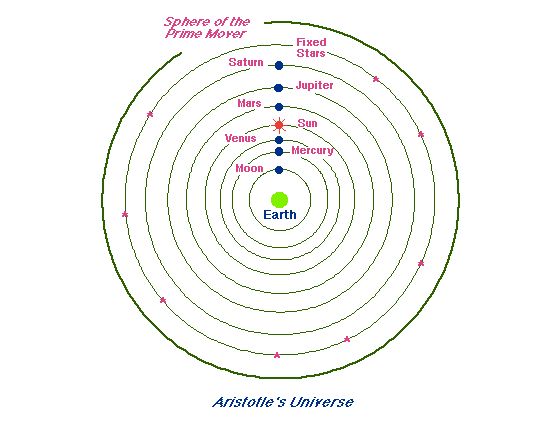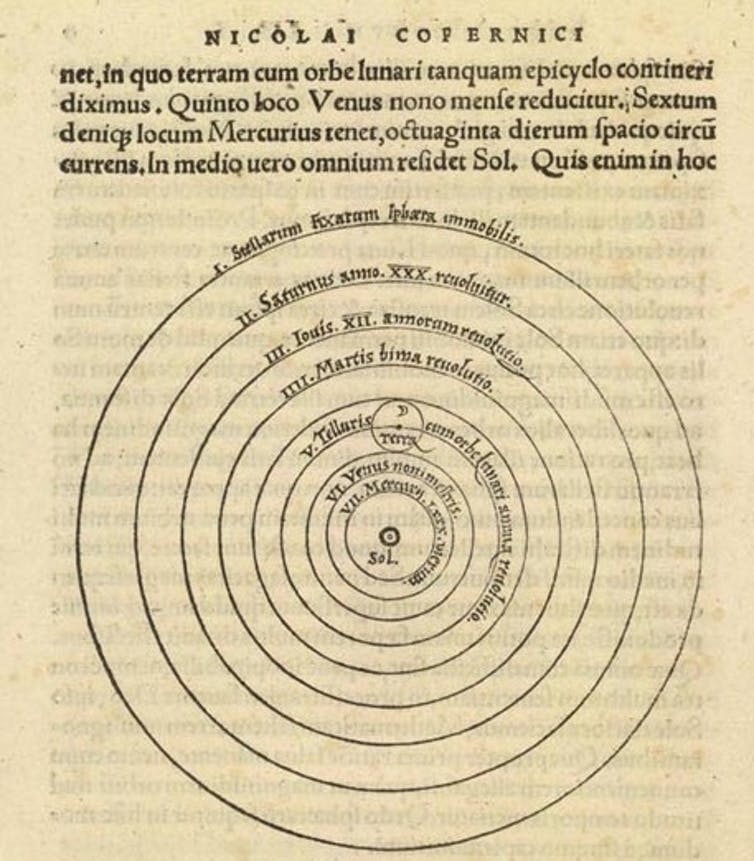
February 19, 1473
Renaissance astronomer and mathematician Nicolaus Copernicus was born on this date in Torun, Poland. At a time when deeply entrenched beliefs placed the Earth at the center of the universe – nested within crystal spheres – he proposed the revolutionary idea that Earth revolves around the sun. Can you picture the leap of imagination required for him to conceive of a sun-centered universe? His book – De revolutionibus orbium coelestium (On the Revolutions of the Celestial Spheres) – was published just before his death in 1543. It set the stage for all of modern astronomy.
Today, people speak of his work as the Copernican Revolution.

Ancient Greek views of the universe
Copernicus wasn’t the first to conceive of a sun-centered universe. Early Greek and Mesopotamian philosophers also spoke of it.
It was the Greek philosopher Aristotle, however, who proposed that the heavens comprised of 55 concentric, crystalline spheres. He said that celestial objects attached to these spheres.
In Aristotle’s model, Earth lay at the center of these spheres.

Nicolaus Copernicus broke the ‘crystal spheres’
So, Earth lay – fixed and enclosed – until Copernicus published his version of a heliocentric, or sun-centered, universe. Copernicus’s ideas and ground-shaking book moved the Earth and replaced it with the sun.
Read more: Copernicus’ revolution and Galileo’s vision, in pictures.

Bottom line: Nicolaus Copernicus proposed that the sun, not the Earth, was at the center of the universe. He was born on this date, February 19, in 1473.
The post When Nicolaus Copernicus moved the Earth first appeared on EarthSky.
from EarthSky https://ift.tt/hTgCe8u

February 19, 1473
Renaissance astronomer and mathematician Nicolaus Copernicus was born on this date in Torun, Poland. At a time when deeply entrenched beliefs placed the Earth at the center of the universe – nested within crystal spheres – he proposed the revolutionary idea that Earth revolves around the sun. Can you picture the leap of imagination required for him to conceive of a sun-centered universe? His book – De revolutionibus orbium coelestium (On the Revolutions of the Celestial Spheres) – was published just before his death in 1543. It set the stage for all of modern astronomy.
Today, people speak of his work as the Copernican Revolution.

Ancient Greek views of the universe
Copernicus wasn’t the first to conceive of a sun-centered universe. Early Greek and Mesopotamian philosophers also spoke of it.
It was the Greek philosopher Aristotle, however, who proposed that the heavens comprised of 55 concentric, crystalline spheres. He said that celestial objects attached to these spheres.
In Aristotle’s model, Earth lay at the center of these spheres.

Nicolaus Copernicus broke the ‘crystal spheres’
So, Earth lay – fixed and enclosed – until Copernicus published his version of a heliocentric, or sun-centered, universe. Copernicus’s ideas and ground-shaking book moved the Earth and replaced it with the sun.
Read more: Copernicus’ revolution and Galileo’s vision, in pictures.

Bottom line: Nicolaus Copernicus proposed that the sun, not the Earth, was at the center of the universe. He was born on this date, February 19, in 1473.
The post When Nicolaus Copernicus moved the Earth first appeared on EarthSky.
from EarthSky https://ift.tt/hTgCe8u

Aucun commentaire:
Enregistrer un commentaire